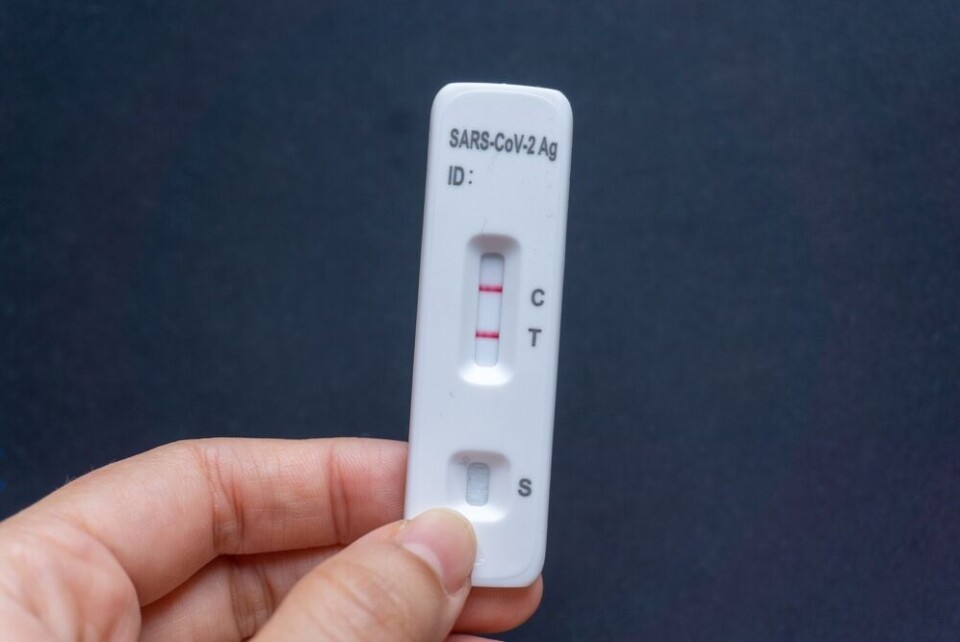-
French nature festival is a paradise for bird watchers
The spring event runs from April 12-20, showcasing the rich flora and fauna of the Baie de Somme
-
D-Day silhouettes overlooking the British Normandy Memorial return for a second year
‘I don’t think anyone could walk through without getting a real sense of respect for the soldiers who died here’
-
Local election rule changes in France and why you may have a new mayor in 2026
Communes with fewer than 1,000 residents are particularly set to see changes from next year
What is known about the new Covid subvariant spreading through France?
France has reported the highest number of cases within Europe. It can cause unusual symptoms and one expert says it could lead to a ‘new winter Covid wave’

France has reported the highest number of cases of a new Covid subvariant - dubbed JN.1 or BA.2.86.1.1 - of European countries, health authorities report, warning that it is spreading fast.
Health authority Santé publique France (SPF) issued the warning during its most recent risk analysis report, updated on November 17.
What is the new strain?
The new JN.1 is from the Omicron strain ‘family’ and is a sub-strain of Pirola (BA.2.86), a sub-variant of Omicron.
Read more: Covid in France: What are symptoms of the new variant Pirola?
SPF said that around 10% of tests in October had been positive for JN.1.
What are the symptoms of the new strain?
The symptoms are in many cases very similar to previous strains of Covid, including fatigue, a cough, headaches, fever, a runny nose, and a loss of smell or taste.
However, in rare cases, Pirola and its sub variants can also cause eye irritation and a rash on the face. It can also cause diarrhoea and stomach cramps.
Is the new strain of particular concern?
Expert epidemiologist Professor Antoine Flahault - who is also Regional Director of WHO-Europe in charge of the stabilisation of Covid-19 - has said that France and Ireland are “the two epicentres of this [new] emerging epidemic”, with France a particular “hotspot”.
La France est le hotspot de l’émergence du nouveau variant BA.2.86.1 (JN.1) avec un développement rapide en Île-de-France. La faiblesse de la surveillance et du séquençage dans le monde doit rendre prudent sur la situation réelle.
— Antoine FLAHAULT (@FLAHAULT) November 11, 2023
Pas de virulence accrue rapportée. #COVID19 pic.twitter.com/qwtQnygvod
However, SPF said that “at this stage, analyses have not identified any signals of concern for either BA.2.86 or JN.1. However, there are still a number of cases under investigation which may affect these results”.
Prof Flahault has said that it could cause a “new winter wave”.
“It could cause an increase in the incidence [number of cases per 100,000 people]”, he said, in an interview with La Dépêche.
“France is currently in the midst of an epidemic decline, following a wave that began in mid-summer and peaked a few weeks ago,” he said.
“Now, thanks to the population's very solid immunity coverage, thanks to vaccination and the repeated reinfections of recent years, the waves of Covid-19 are no longer creating the hospital overcrowding or excess mortality we saw at the start of the pandemic.
“But new waves continue to manifest themselves in flu-like syndromes that require sufferers to stay in their rooms for two to four days, and lead to persistent forms of Covid that can be very disabling.”
A new winter wave?
He said that the stopping of barrier measures, such as wearing a mask in crowded spaces, is “facilitating the spread of respiratory viruses”.
However, he said that the measures had partly been relaxed due to the drop in Covid mortality, which was “a good thing”.
But the professor did add that JN.1 could “become established in the Île de France region over the next few weeks [and] when it exceeds 50-60% of the sequences analysed…[it could] very probably lead to a new wave, this time in winter”.
Why is France particularly affected?
Professor Flahault said that this was not yet clear.
He said; “For reasons unknown to me, France is an 'epicentre' of this emerging JN.1 epidemic. We still don't know much about the characteristics of these new variants in terms of transmissibility and virulence.”
Yet, he said that despite the cases identified, “no alarming reports have been received to date”.
Related articles
Covid in France: What are symptoms of the new variant Pirola?
SEE: Latest figures on Covid-19 in France show cases are stabilising
Waste water in France to be monitored for Covid and other viruses
























